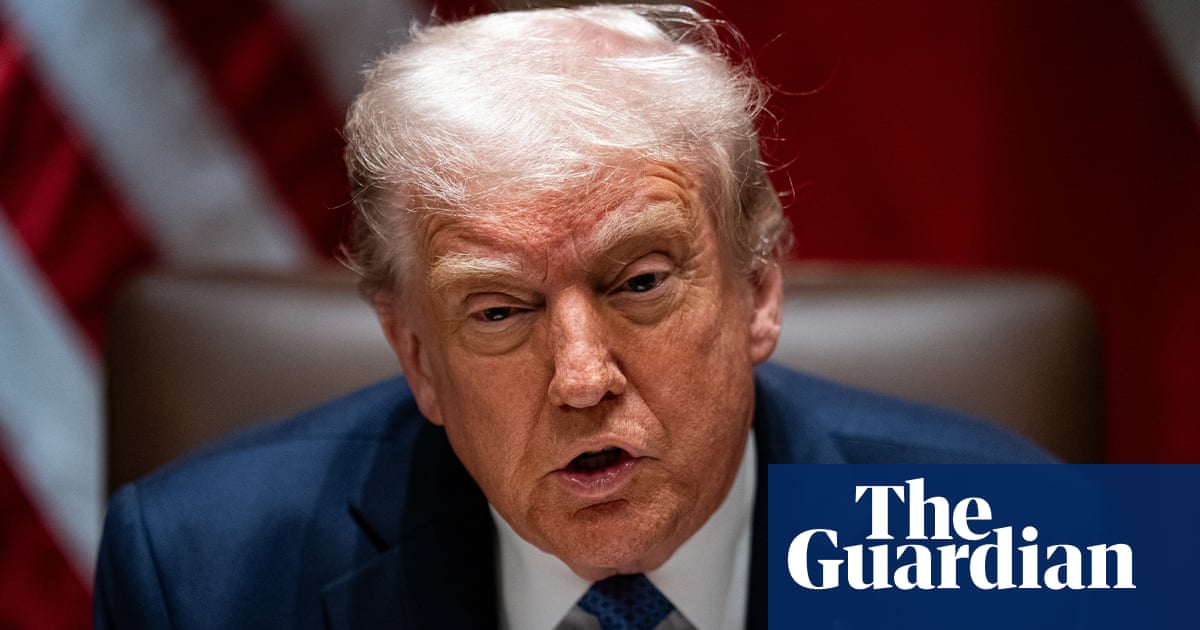The US andChinaheld talks on Thursday to help resolve the trade war between the world’s two largest economies, Donald Trump said.
“We may reveal it later, but they had meetings this morning, and we’ve been meeting with China,” the US president told reporters at the White House.
China had earlier hit back against Trump’s previous claim to be close to a trade deal with Beijing.
Trump had buoyed markets by suggesting on Wednesday that the US was “actively” negotiating with Beijing, and pointing to hopes of a deal that would “substantially” reduce tariffs, now set at 145%, on goods coming into the US from China.
The Chinese commerce ministry’s spokesperson He Yadong said there were “currently no economic and trade negotiations between China and the United States”.
“Any claims about progress in China-US economic and trade negotiations are baseless rumours without factual evidence,” he said, adding that if the US wanted “de-escalation” – as Trump’s Treasury secretary, Scott Bessent, has argued – it should “completely cancel all unilateral tariff measures against China and find a way to resolve differences through equal dialogue”.
Earlier this monthBeijing retaliatedagainst Trump’s tariffs by imposing a 125% tariff in turn, a situation that Bessent described as unsustainable, saying it amounted in effect to a trade embargo.
The director of the International Monetary Fund (IMF), Kristalina Georgieva, used a press conference in Washington on Thursday to call for a truce in the escalating trade conflict, to limit the damage to the global economy.
She declined to criticise the US administration directly but said “major trade policy shifts” had “spiked uncertainty off the charts”.
“A trade policy settlement among the main players is essential and we are urging them to do it swiftly, because uncertainty is very costly,” she said.
“I cannot stress this strongly enough: without certainty, businesses do not invest, households prefer to save rather than to spend, and this further weakens prospects for already weakened growth.”
Trump and his team have repeatedly highlighted the number of countries that are keen to strike trade deals since his “liberation day” tariffs were imposed and then partly paused earlier this month. But no deal has yet been signed.
The IMFdowngraded its forecaststhis week for global economic growth and warned of further downside risks if the trade war escalated. “Simply put, the world economy is facing a new and major test,” Georgieva said.
She added that the situation was particularly challenging because many countries had little room for policy manoeuvre after already enduring a series of economic shocks in recent years.
Asked what the mood of the delegations from the fund’s member countries in Washington had been this week, Georgieva said: “The membership is anxious.”
“We were just about to step on the road to more stability after multiple shocks. We were projecting 3.3% growth, and actually we were worried that this was not strong enough – and here we are,” she said. The IMF is now forecasting global growth of 2.8% for this year.
Sign up toBusiness Today
Get set for the working day – we'll point you to all the business news and analysis you need every morning
after newsletter promotion
Georgieva urged China to carry out economic reforms as a response to the shift in policy in Washington. She suggested Beijing should boost demand at home, to rebalance its economy away from its dependence on exports, and “pull back from too much intervention in the economy”.
With many multilateral institutions under attack from theTrump administration, Georgieva welcomed a speech by Bessent on Wednesday in which he said the Bretton Woods institutions – the IMF and the World Bank – had “enduring value”.
“I very much appreciate Secretary Bessent’s reiteration of the US commitment to the Fund and to its role,” she said.
However, Bessent also fiercely criticised the institutions for what he called “mission creep” and their “sprawling and unfocused agendas”, including issues such as gender and the climate crisis.
Georgieva, responding to a question about these claims, declined to say whether the IMF would continue to work on climate or gender.
But she replied: “I want to say that I actually agree with the secretary on one thing. It’s a very complicated world, a world of massive challenges of all kinds.” Stressing that the Fund was a “very fiscally disciplined institution”, she added: “Yes, we have to focus.”
Discussions on the sidelines of the IMF and World Bank meetings have been dominated by the knock-on effects of Trump’s trade policy, with ministers closely monitoring the stream of pronouncements from the White House.
Most countries are facing 10% tariffs on all exports to the US, and 25% for some key products such as cars. It remains unclear whether the much higher “reciprocal” rates announced by Trump in the White House Rose Garden will be reimposed when his 90-day “pause” is over.
